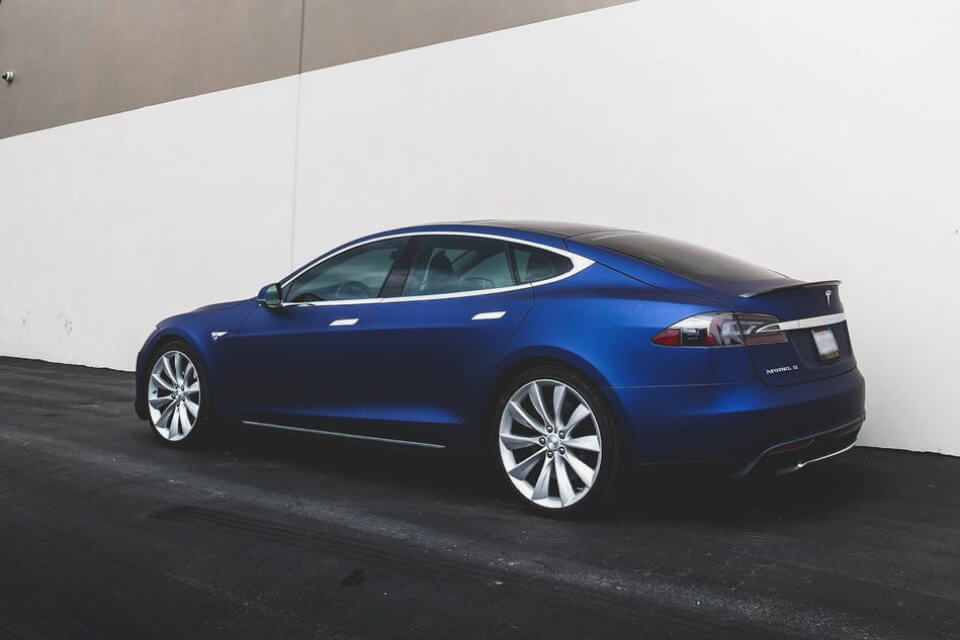The future of mobility is being shaped by rapid advancements in technology, transforming automobiles into more than just vehicles for transportation. The integration of cutting-edge technology is revolutionizing the way we think about cars, with the potential to make driving safer, more efficient, and more convenient. From electric and autonomous vehicles to advanced connectivity and smart infrastructure, The Future of Mobility How Technology is Transforming Automobiles is a hot topic in the automotive industry. As technology continues to evolve, it is clear that the future of mobility will be defined by innovation and connectivity, shaping the way we interact with vehicles and the transportation system as a whole.
The Rise of Electric Vehicles
Electric vehicles (EVs) are becoming increasingly popular as a sustainable mode of transportation. With advancements in battery technology, EVs can now travel longer distances on a single charge, making them a viable option for daily commutes and road trips. In addition to reducing greenhouse gas emissions, EVs are also quieter and require less maintenance than traditional internal combustion engine vehicles. As the infrastructure for EV charging stations continues to expand, more consumers are making the switch to electric vehicles, signaling a shift towards a greener future of mobility.
Automakers are investing heavily in the development of electric vehicles, with many introducing new models to meet the growing demand. Governments around the world are also offering incentives to encourage the adoption of EVs, such as tax credits and rebates. As technology continues to improve and the cost of batteries decreases, electric vehicles are expected to become even more accessible and affordable for consumers, further accelerating the transition away from traditional gasoline-powered cars.
Autonomous Driving Technology
Advancements in artificial intelligence and sensor technology have paved the way for autonomous driving, where vehicles can operate without human intervention. Autonomous vehicles have the potential to improve road safety, reduce traffic congestion, and provide mobility options for individuals who are unable to drive themselves. Companies such as Tesla, Waymo, and Uber are actively testing and refining autonomous driving technology, with the goal of eventually making it a mainstream feature in the automotive industry.
While fully autonomous vehicles are still in the testing phase, many modern cars already incorporate semi-autonomous features, such as adaptive cruise control and lane-keeping assist. These technologies are laying the groundwork for a future where drivers can relinquish control to their vehicles during certain conditions, such as highway driving. As autonomous driving technology continues to evolve, it is expected to revolutionize the way people and goods are transported, offering a glimpse into a new era of mobility.
Connected Vehicles and Smart Infrastructure
Connected vehicle technology allows cars to communicate with each other and with the surrounding infrastructure, such as traffic lights and road signs. This connectivity enables features like real-time traffic updates, predictive maintenance alerts, and enhanced navigation systems. Moreover, vehicle-to-everything (V2X) communication can improve safety by alerting drivers to potential hazards and preventing accidents through coordinated actions between vehicles and infrastructure.
Smart infrastructure, including dedicated short-range communication (DSRC) and 5G networks, plays a crucial role in supporting connected vehicle technology. As cities and transportation agencies invest in smart infrastructure, the potential for safer and more efficient transportation systems becomes increasingly achievable. The integration of connected vehicles and smart infrastructure is expected to revolutionize the way people and goods move, ultimately leading to a more seamless and interconnected mobility experience.
Ride-Sharing and Mobility Services
Ride-sharing platforms, such as Uber and Lyft, have transformed the way people access transportation services. These services offer convenient, on-demand mobility options that reduce the need for personal car ownership in urban areas. In addition to traditional ride-sharing, the rise of electric scooters, bikes, and micro-mobility solutions provides alternative modes of transportation for short-distance travel.
Furthermore, the concept of Mobility as a Service (MaaS) is gaining traction, where various transportation options are integrated into a single, user-friendly platform. Users can plan, book, and pay for a combination of public transit, ride-sharing, and other mobility services through a unified app. As urban populations continue to grow, the demand for flexible and efficient mobility solutions is driving innovation in the transportation industry, leading to a more interconnected and sustainable urban mobility ecosystem.
Sustainability and Environmental Impact
The automotive industry is increasingly focused on sustainability, with a growing emphasis on reducing carbon emissions and minimizing environmental impact. Electric vehicles, renewable energy sources, and eco-friendly materials are at the forefront of this shift towards sustainable mobility. Automakers are investing in sustainable manufacturing processes and exploring new, innovative materials to reduce the environmental footprint of vehicle production.
Furthermore, the concept of circular economy is gaining prominence, where the entire lifecycle of a vehicle, from manufacturing to end-of-life recycling, is designed to minimize waste and maximize resource efficiency. From reducing single-use plastics in car interiors to implementing closed-loop recycling systems, the automotive industry is embracing sustainability as a core principle in shaping the future of mobility.
Personalized and On-Demand Transportation
Advancements in technology are enabling personalized transportation experiences tailored to individual preferences and needs. From customizable vehicle configurations to on-demand delivery services, the future of mobility is shifting towards a more personalized and convenient approach. Companies are exploring subscription-based models that offer flexibility in vehicle ownership and usage, allowing consumers to access a variety of vehicles based on their current needs.
Furthermore, the integration of artificial intelligence and data analytics enables predictive maintenance and personalized recommendations for vehicle services, creating a seamless and proactive ownership experience. As technology continues to evolve, the future of mobility is expected to offer unparalleled customization and convenience, catering to the diverse preferences of modern consumers.
Energy Efficiency and Alternative Powertrains
Energy efficiency is a key focus in the development of future mobility solutions. Automakers are exploring alternative powertrains, such as hydrogen fuel cells and biofuels, to reduce reliance on traditional fossil fuels. These alternative powertrains offer the potential to lower greenhouse gas emissions and minimize the environmental impact of transportation.
In addition to alternative fuels, lightweight materials and aerodynamic designs are being employed to improve the overall energy efficiency of vehicles. From electric powertrains to advanced aerodynamics, the automotive industry is embracing innovation to create more sustainable and energy-efficient mobility solutions for the future.
Data Security and Privacy Concerns
As vehicles become more connected and autonomous, data security and privacy concerns come to the forefront. The collection and transmission of sensitive vehicle and user data raise important questions about cybersecurity and privacy protection. Automakers and technology companies are continuously working to implement robust cybersecurity measures to safeguard vehicle systems from potential cyber threats.
Moreover, regulations and standards are being developed to address data privacy and ownership, ensuring that consumers have control over the use and sharing of their personal and vehicle-related data. As technology continues to advance, addressing data security and privacy concerns will be paramount in building trust and confidence in the future of mobility.
| Technology | Impact on Automobiles |
|---|---|
| Autonomous Driving | Enables self-driving cars, reducing accidents and providing convenience. |
| Electric Vehicles | Reduces reliance on fossil fuels, leading to a more sustainable mode of transportation. |
| Connected Cars | Allows for real-time data sharing, improving safety and navigation. |
| Shared Mobility | Encourages carpooling and ride-sharing, reducing traffic congestion. |
The future of mobility is being transformed by technology, with advancements such as autonomous driving, electric vehicles, connected cars, and shared mobility reshaping the automobile industry. These innovations are not only revolutionizing the way we drive, but also leading to safer, more sustainable, and efficient modes of transportation.



